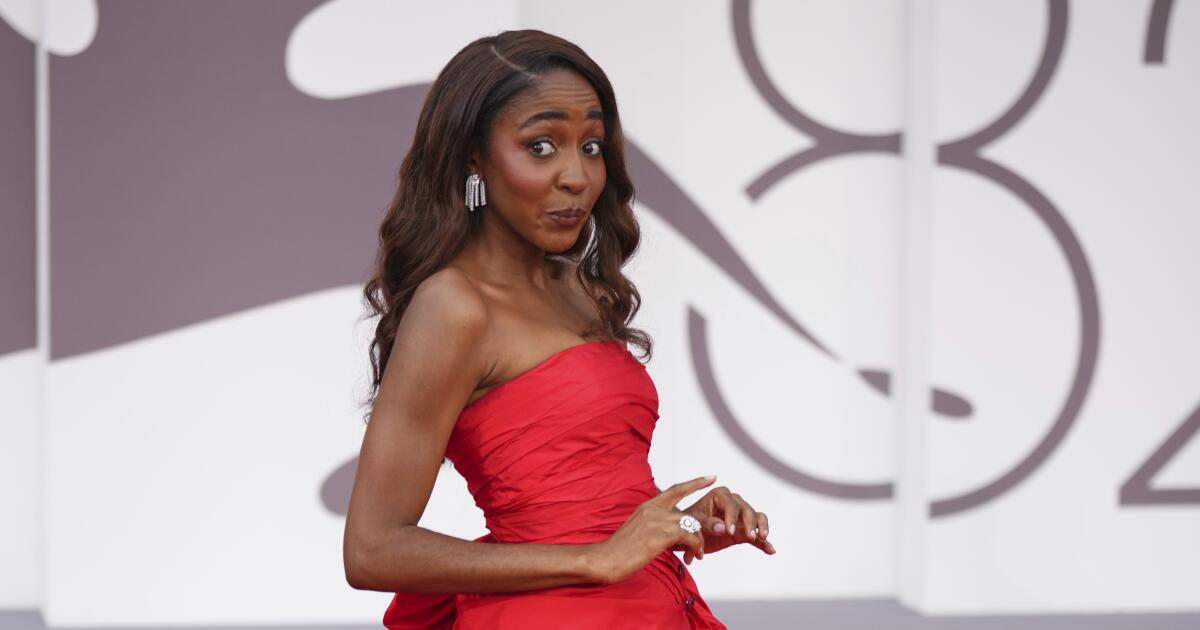The Italian journalist who — for some reason — excluded Ayo Edebiri in a question about Hollywood and the Black Lives Matter and #MeToo movements has spoken out about the now-viral interview.
Federica Polidoro posted a statement Monday on Instagram defending her work, saying that she has been subject to “violent language, personal attacks, and cyberbullying” following the “question that, for some reason, was not well received by some members of the public.”
“Rather than focusing on the thoughtful responses of Ayo Edebiri, Julia Roberts, and Andrew Garfield, the discussion continues solely on how I should have phrased the question,” Polidoro wrote.
The exchange in question occurred at a press event with Edebiri, Roberts and Garfield at the Venice Film Festival, where their film “After the Hunt,” directed by Luca Guadagnino, made its world premiere. In a video that has been shared widely, Polidoro is heard asking Roberts and Garfield what they thought was “lost during the politically correct era” and what people can expect from Hollywood now that “the #MeToo movement and Black Lives Matters are done.”
After Roberts asks the journalist to clarify who the question is directed to, Polidoro reiterates that her question is for Roberts and Garfield. As the actors share a look, Edebiri raises her hand to respond instead.
“I know that that’s not for me and I don’t know if it’s purposeful that it’s not for me — but I am curious — but I don’t think it’s done,” the star of “The Bear” says. “I don’t think it’s done at all.”
“I think maybe hashtags might not be used as much,” she continues, “but I do think that there’s work being done by activists, by people, every day, that’s beautiful, important work that’s not finished. That’s really, really, really active for a reason. Because this world is really charged. And that work isn’t finished at all. Maybe there’s not mainstream coverage in the way that there might have been, daily headlines in the way that it might have been, eight or so years ago, but I don’t think it means that the work is done. That’s what I would say.”
“The movements are still absolutely alive,” Garfield says in agreement. “Just maybe not as labeled or covered or magnified as much in this present moment.”
In her statement, Polidoro pushed back against accusations of racism, saying she has “interviewed people of every background and ethnicity” over the course of her 20-year career.
“My own family is multi-ethnic, matriarchal, and feminist, with a significant history of immigration,” wrote Polidoro, who in her Instagram bio mentions being a Golden Globes voter and awards season analyst. “In my view, the real racists are those who see racism everywhere and seek to muzzle journalism, limiting freedom of analysis, critical thinking, and the plurality of perspectives.”
Polidoro’s statement also said, “Censoring or delegitimizing questions considered ‘uncomfortable’ does not fall within the practice of democracy. … Journalism’s role is to ask questions, even on delicate topics, with respect and responsibility.”
